Search
Search Results
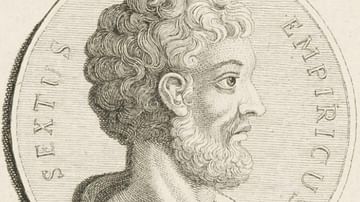
Definition
Sextus Empiricus
Sextus Empiricus (l. c. 160 to c. 210 CE) was a Greek Skeptic who developed the ideas of the earlier Greek Skeptic philosopher Pyrrho of Elis (l. c. 360 to c. 270 BCE) who claimed that tranquility of mind was attainable by suspending judgment...

Article
Protagoras of Abdera: Of All Things Man Is The Measure
Protagoras of Abdera (l.c. 485-415 BCE) is most famous for his claim that "Of all things the measure is Man, of the things that are, that they are, and of the things that are not, that they are not" (DK 80B1) usually rendered simply...

Definition
Gorgias
Gorgias (l. c. 427 BCE) was a Greek Sophist and philosopher, considered the greatest Rhetorician of his day. He is said to have created several aspects of public speaking still in use and to have mastered the art of persuasion, commanding...
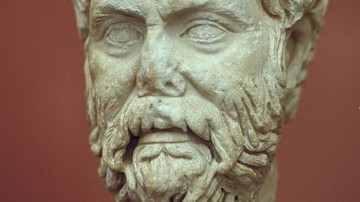
Definition
Pyrrho
Pyrrho of Elis (l. c. 360 to c. 270 BCE) was a Greek skeptic philosopher credited with founding the school of Pyrrhonism which taught that one must resist making judgments or stating conclusions because sense perception did not correlate...
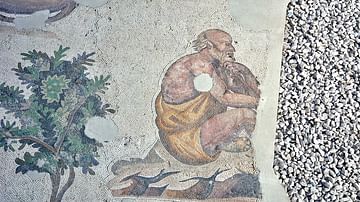
Article
Gorgias' On Nature (On the Non-Existent)
Gorgias of Leontini (l. c. 427 BCE) was a famous Greek Sophist who claimed that nothing exists and, even if it does, its nature cannot be understood and, even if it could be, one is not able to communicate that understanding to another person...

Definition
Protagoras
Protagoras of Abdera (l. c. 485-415 BCE) is considered the greatest of the Sophists of ancient Greece and the first philosopher in the West to promote Subjectivism, arguing that interpretation of any given experience, or anything whatsoever...
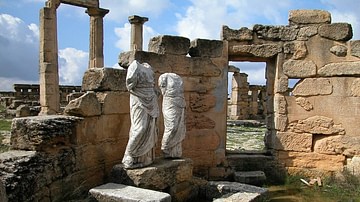
Definition
Cyrenaics
The Cyrenaics were a philosophical school of thought founded c. 4th century BCE by Aristippus of Cyrene (l. c. 435-356 BCE) who taught that sensual pleasure was the highest good and only worthwhile pursuit in life. Known as the first hedonistic...
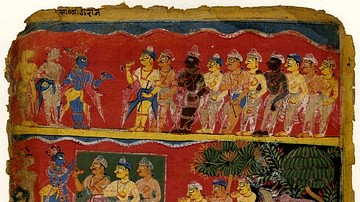
Article
Caste System in Ancient India
Ancient India in the Vedic Period (c. 1500-1000 BCE) did not have social stratification based on socio-economic indicators; rather, citizens were classified according to their Varna or castes. 'Varna' defines the hereditary roots of a newborn...
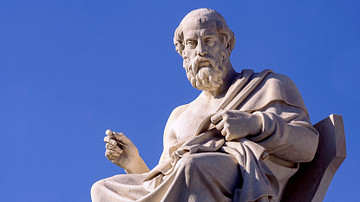
Article
Plato's Lie In The Soul
Plato's Lie in the Soul (or the True Lie) is a concept appearing in Republic, Book II, 382a-382d, defined as "being deceived in that which is the truest and highest part of or about the truest and highest matters" or, in other words, being...

Article
The Papyrus Lansing: Be A Scribe…Or Else!
The Papyrus Lansing is an ancient Egyptian document that dates to the reign of the Pharaoh Senusret III (also known as Sesostris III, and, arguably, the legendary Sesostris written of by Herodotus) the 5th ruler of the 12th Dynasty of Egypt...